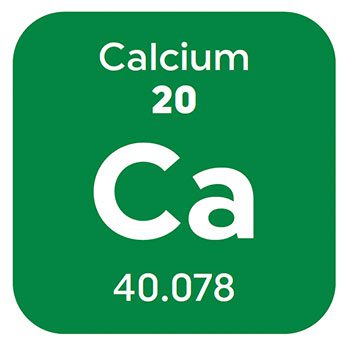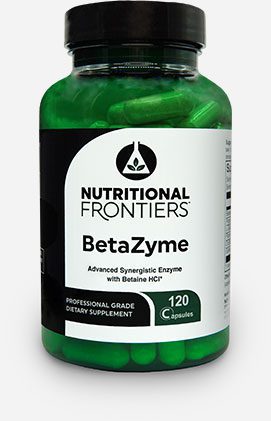Sections
- Antibiotics
- Artificial Sweeteners
- Aspirin & Stroke
- Blood Pressure Medications & Mineral Depletion
- Calcium
- Coenzyme Q10
- Diet & Lifestyle
- Food Allergies
- Nutritional Frontiers Purity & Potency
- Possible Imbalances From Medications
- Quality & Patented Research
- Quality, Purity, & Potency
- Targeted Nutrition
- The Benefits of Multivitamin Use Substantiated
- The Dangers of Over-The-Counter Pain Medications
- The Ins & Outs of Whey Protein
- Vitamin D Deficiency
- What’s In Your Multivitamin?
- Why Choose Nutritional Frontiers Vegetable Protein Over Competing Brands


DID YOU KNOW?
1 out of 2 females and 1 out of 8 males will suffer osteoporotic fracture in their lifetime.
- 2 Types of Osteoporosis: Postmenopausal and Senile
- 2 Factors Contribute to Osteoporotic Fractures: Peak bone mass you build by 30, and/or Rate of Bone Loss after 30
A lifestyle approach for bone health and maintenance such as food intake, exercise, and nutritional supplements is the safest, most effective method for increasing and maintaining healthy bones.
How Much & What Form?
The Institute of Medicine recommends that premenopausal women and adult men up to age 71 obtain a Recommended Daily Allowance of 1000 mg of calcium per day to achieve optimal bone health. Post-menopausal women (i.e., women over age 51) should aim for 1200 mg of calcium a day, along with men aged 71 years and over. Pregnant and lactating women may have different calcium needs which can be discussed with a midwife or obstetrician. Children and teenagers aged 9-18 have increased calcium needs, at a dose of 1300 mg daily. The dose of calcium necessary for children younger than age 9 varies depending on age and your child’s pediatrician or naturopathic doctor can best advise you on the optimal dose and how to achieve that.
Some forms of calcium are more easily absorbed in the body than others. Calcium carbonate is the least expensive form of calcium, but also the least well absorbed at between 1 and 8% at best. Mineral salts of calcium (like calcium carbonate) are not as well absorbed as chelated forms, such as calcium citrate. Also keep in mind that calcium absorption is inhibited by low stomach acid antacid medication. Aside from calcium citrate, another beneficial and popular form of calcium found in supplements is MCHC, which stands for microcrystalline hydroxyapatite compound. This type of calcium is derived from purified animal bone and is rich not only in calcium but also phosphorus and other natural factors. Some studies show that MCHC is effective at reducing and preventing bone loss.

Calcium has long been thought to be a health-promoting supplement for all, particularly during childhood, menopause, and pregnancy. Calcium is known to support bone health and is used to prevent and treat osteoporosis in both women and men. However, recent research claims to find that calcium supplementation is associated with an increased risk of cardiovascular disease. What do we make of this new information that flies in the face of years of research that demonstrates the health benefits of this mineral?
A 2010 meta-analysis of 15 randomized, controlled trials found that subjects taking calcium supplements had a higher incidence of heart attacks compared with participants taking a placebo pill. The problem with this meta-analysis is that the evidence linking calcium supplements with heart attacks relies on data from studies whose primary endpoint was the effect of calcium on osteoporosis. The studies were not designed to detect the relationship between calcium supplements and cardiovascular risk. This calls into question the validity of their negative conclusions about calcium supplements. Furthermore, according to Dr. Alan Gaby’s comments on the study, the cardiovascular risk was only of borderline statistical significance, and in secondary analyses like this, findings of borderline statistical significance are more likely to be due to chance than to be of legitimate concern.
Bone health is optimized not just by calcium alone; it is preferable to take calcium with magnesium and vitamin D, among other nutrients.
Dr. Gaby and other healthcare professionals also point out that taking high dose monotherapy (only taking one nutrient) is often not a good idea! Bone health is optimized not just by calcium alone; it is preferable to take calcium with magnesium and vitamin D, among other nutrients. Calcium alone may cause magnesium deficiency, and magnesium may protect heart health. Therefore it is important when taking calcium supplements to combine the calcium with other key nutrients.
A panel of experts in the fields of nutrition, cardiology, bone health, epidemiology, and integrative medicine researched this question of the relationship between calcium and cardiovascular health. Their conclusions after a year of investigation were published in the November 2012 edition of Advances in Nutrition: according to the collected evidence available so far, calcium supplementation is not associated with an increased risk of cardiovascular disease.
Additionally, a 2012 study published in the American Journal of Clinical Nutrition by Samelson and colleagues assessed 690 women and 588 men for an association between calcium Intake (both diet and supplements) and coronary artery calcification. Their conclusions: “our study does not support the hypothesis that high calcium intake increases coronary artery calcification, which is an important measure of atherosclerosis burden.”
Furthermore, a recent 2013 clinical trial called the Women’s Health Initiative studied 36,282 women taking either calcium-plus-vitamin D or placebo. This study, published in Osteoporosis International found a substantial beneficial effect of long term calcium and vitamin D supplementation on the risk of hip fracture. This study also concluded that there was no effect of calcium plus vitamin D supplementation on the risks of heart attack, coronary heart disease, total heart disease, stroke, overall cardiovascular disease, colorectal cancer, or total mortality.
Clearly then, patients should get healthcare advice from qualified practitioners who stay current in nutritional scientific literature (such as some medical doctors, osteopaths, and chiropractors as well as naturopathic doctors, nutritionists, dieticians). Relying on the media to provide accurate information on healthcare and commentary on the latest studies is ill advised.
Nutritional Frontiers Offers Several Supplements
to Support Bone Health
Ask about our bone solutions for optimal bone health and a complete regimen to promote healthy bones.
Sources:
Bolland MJ, et al. Effect of calcium supplements on risk of myocardial infarction and cardiovascular events: meta-analysis. BMU. 2010;241:c261.
Gaby, Alan R. MD. Editorial: Do Calcium Supplements Cause Cardiovascular Disease? Townsend Letter. January 2011.
Heany RP. Kopecky S. Maki KC. et al. A review of calcium supplements and cardiovascular disease ris. Adv Nutr. 2021 Nov 1;2(6):763-71.
Samelson EJ. Booth SL. Fox CS. Et al. Calcium intake is not associated with increased coronary artery calcification: the Framingham Study. Am J Clin Nutr. 2012 Dec;96(6):1274-80. Doi: 10.3945/ajcn.112.044230.
Prentice RL Pettinger MB. Jackson RD, et al. Health risks and benefits from calcium and vitamin D supplementation: Women’s Health Initiative clinical trial and cohort study. Osteoporos Int. 2013 Feb;24(2):567-80. Doi: 10.1007/s00198-012-2224-2. Epub 2012 Dec 4.
From the National Institutes of Health Office of Dietary Supplements. http://ods.od.nih.gov/factsheets/Calcium-HealthProfessional/
Stellon A. Davies A. Webb A. et al. Microcrystalline hydroxyapatite compound in prevention of bone loss in corticosteroid=treated patients with chronic active hepatitis. Postgrad Med J. 1985 Sep;61(719):791-6.
Dent CE. Davies IJ. Calcium metabolism in bone disease: effects of treatment with microcrystalline calcium hydroxyapatite compound and dihydrotachysterol. J R Soc Med. 1980 Nov:73(110:780-5
Nilsen KH. Jayson MI. Dixon AS. Microcrystalline calcium hydroxyapatite compound in corticosteroid-treated rheumatoid patients: a controlled study. Br Med J. 1978 Oct 21;2(6145):1124.
Epstein O. Kato Y. Dick R. et al. Vitamin D, Hydroxyapatite, and calcium gluconate in treatment of cortical bone thinning in postmenopausal women with primary biliary cirrhosis. Am J Clin Nutr. 1982 Sep;36(3)426-30





